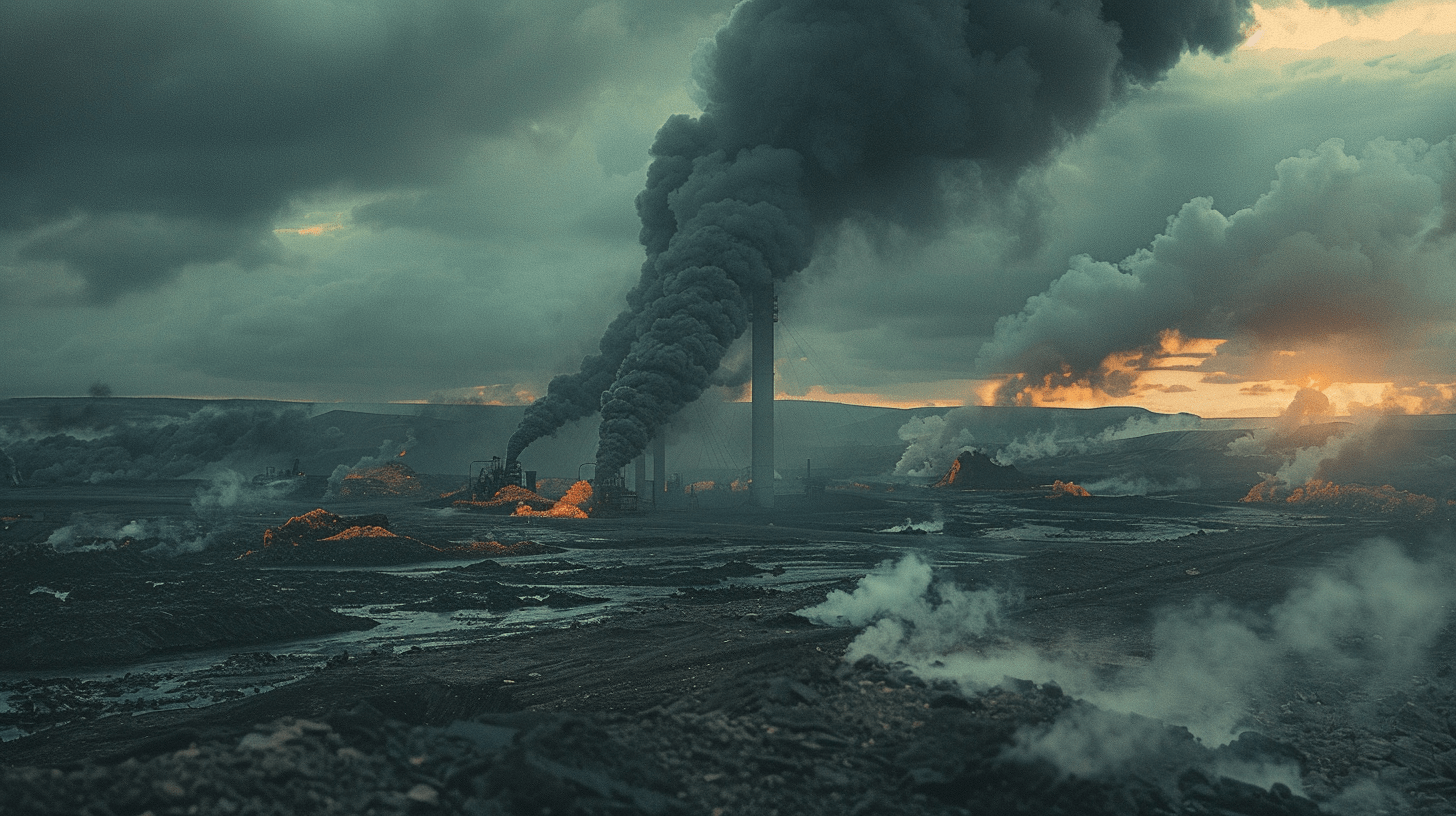Fossil Fuels
This challenge explores fossil fuels, their historical significance, environmental impact, and role in climate change while offering actionable strategies to transition towards sustainable energy and reduce global dependency.

Global Dependency on Fossil Fuels
Fossil fuels power much of modern life, from the electricity that lights your home to the fuel in your car. However, this reliance extends far beyond individual consumption. Entire economies, industries, and geopolitical relationships are deeply tied to fossil fuels. In this lesson, you’ll explore the extent of global dependency on fossil fuels, how their reserves are distributed, and what this means for energy security and the environment.
The Scale of Global Fossil Fuel Consumption
Fossil fuels—coal, oil, and natural gas—account for roughly 80% of the world’s primary energy consumption. This dominance reflects their role in powering electricity, fueling transportation, and supporting industrial processes. For instance, in 2025, global oil demand will exceed 100 million barrels per day, with natural gas and coal usage also reaching record levels to meet growing energy demands.
This dependence is not uniform across sectors. Electricity generation heavily relies on coal and natural gas, while transportation depends primarily on oil. Emerging economies, such as India and China, have seen rapid increases in fossil fuel use as they industrialize, while developed nations are starting to diversify their energy sources.

Reserves and Regional Disparities
The distribution of fossil fuel reserves is highly uneven, creating geopolitical challenges and economic dependencies.
- Oil Reserves: The Middle East holds nearly 48% of proven oil reserves, with countries like Saudi Arabia, Iran, and Iraq at the forefront. This concentration makes global oil markets susceptible to regional instability.
- Coal Reserves: The largest coal reserves are found in the United States, Russia, and China. Coal remains a key energy source for electricity generation, particularly in Asia, where demand continues to grow.
- Natural Gas Reserves: Russia has the largest reserves of natural gas, followed by Iran and Qatar, giving these nations significant influence in global energy markets.
These reserves are finite, and extraction becomes more challenging as resources are depleted.
The International Energy Agency (IEA) estimates that if current consumption trends continue, proven oil and natural gas reserves could be exhausted within the next 50 to 70 years, while coal reserves might last longer.
Economic and Industrial Dependency
Industries around the world are deeply tied to fossil fuels. Petrochemical production, steel manufacturing, and agriculture are all energy-intensive sectors that depend on oil, coal, and natural gas. The global shipping and aviation industries are almost entirely reliant on oil-based fuels, with alternatives still in early stages of development.
This dependency creates economic vulnerabilities. For example, rising fuel prices directly impact transportation costs, food production, and the affordability of goods. Countries that import significant amounts of fossil fuels, such as Japan and many European nations, face additional challenges in balancing energy security with environmental goals.
The Environmental Cost of Dependency
The heavy reliance on fossil fuels comes with significant environmental consequences. Burning fossil fuels accounts for about 73% of global greenhouse gas emissions, making them the primary driver of climate change. Air pollution from coal plants contributes to millions of premature deaths annually, with regions like Southeast Asia particularly affected.
Beyond emissions, extraction processes such as mining, drilling, and fracking disrupt ecosystems and deplete freshwater resources. Oil spills and coal mine collapses serve as stark reminders of the risks involved in meeting the world’s energy demands.
Energy Security and Transition Challenges
Global dependency on fossil fuels also raises concerns about energy security. Political tensions, such as those in the Middle East or involving Russia’s natural gas exports to Europe, highlight the fragility of energy supply chains. The reliance on these fuels makes economies vulnerable to price shocks, as seen during periods of geopolitical conflict or supply disruptions.
Transitioning to renewable energy sources like wind, solar, and hydropower is critical, but challenges remain. Many developing countries lack the infrastructure and investment needed to make the switch, while industrialized nations grapple with the scale of change required to reduce emissions while maintaining economic stability.
Key Takeaways
- Fossil fuels dominate global energy consumption, supplying about 80% of primary energy needs.
- Reserves are unevenly distributed, with the Middle East, Russia, and the United States holding significant shares.
- Industries like transportation, manufacturing, and agriculture remain heavily reliant on fossil fuels.
- Dependency on fossil fuels drives environmental damage, including greenhouse gas emissions and ecosystem disruption.
- Energy security and geopolitical tensions underscore the need for a transition to sustainable energy sources.
Understanding the scale of fossil fuel dependency highlights the urgent need to rethink energy systems and pursue sustainable alternatives. As you move forward in this challenge, you’ll delve deeper into the environmental and societal costs of this reliance and explore pathways to a cleaner, more resilient energy future.